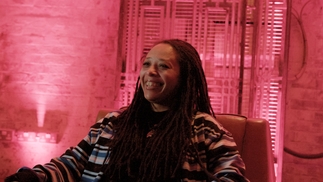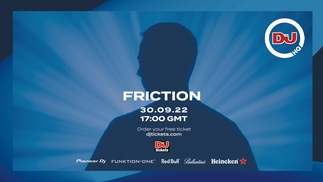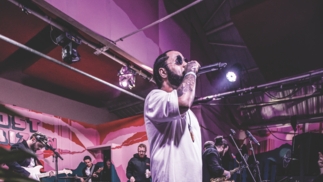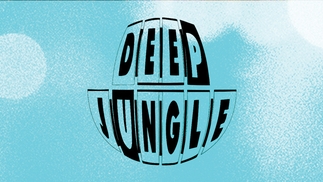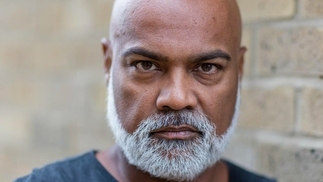BELIEVE THE HYPE!
DJ Hype — a true soldier of the dnb scene
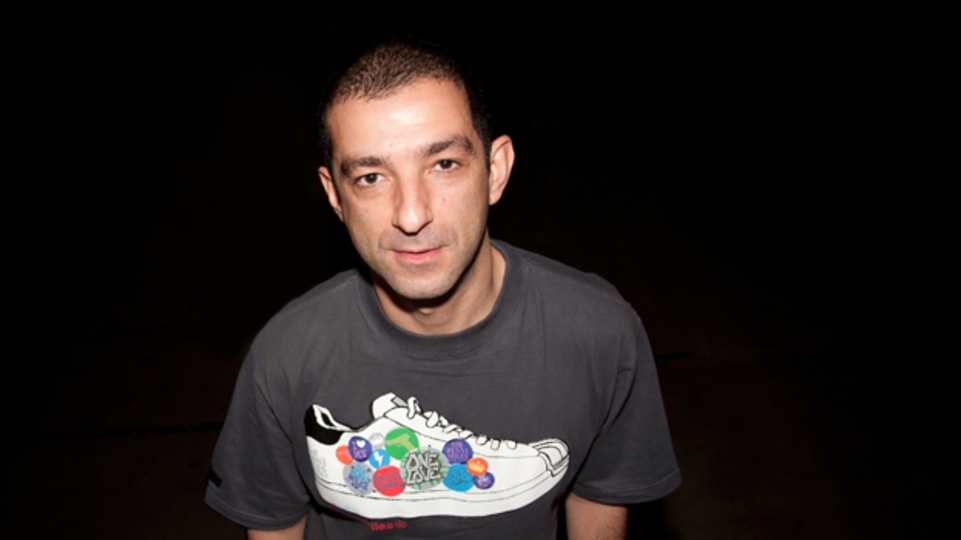
Nearing a quarter of a century DJing, 18 years on Kiss FM, and “150-summink” months straight at Fabric in London, if there’s a DJ more qualified to talk about the history of drum and bass, we’d like to meet them.
DJ Hype has been there from before it even existed, from the days when the early inklings of jungle was no more than breakbeats overlaid on a house track on Fantasy FM. He witnessed the birth of d&b as it broke away from hardcore into its own little box, and as the scene has grown so has his career. With fellow producers Pascal and — at the time — Zinc they founded one of the scene's first main principal DIY labels, Playaz. Now 20 years on, the label’s success is a shining example of the overwhelming acceptance of what was once created as rebel music.
Along with the success of Playaz and its sub-labels, Hype is an internationally reknowned DJ, touring all over Europe and North America, and he's currently touring Asia, as well as regularly playing at the UK’s biggest parties. And on Kiss FM he has achieved the landmark of hosting the longest running drum & bass show on a commercial radio station. And that’s the tip of a very proud and undeniably well deserved iceberg.
Listening to DJ Hype talk about music can be likened to listening to one of his sets: there’s a lot going on, it’s easy to get lost in the onslaught of sound. But if you listen, really listen, there's a profound mix of eclectic, blunt knowledge and mature intellect and understanding, which can only be acquired by years of passion, dedication and living within the music.
What do you remember about the days when jungle was first becoming a genre in its own right?
“I would say it was 1992-93 that jungle music really came into its own, before that we had the hardcore scene that had developed out of the early rave scene. The hardcore scene was where all the early breakbeat sound started developing, and was about 20 bpm slower than jungle.
“Jungle started to be a genre in its own right, and the term jungle was being used to describe the sound when events like Jungle Fever, Roast, AWOL and Lazerdrome started hosting full-on jungle nights and pirate stations like Kool FM and Weekend Rush started to really play and promote the jungle sound.
It was growing and growing until it outgrew London and Jungle Fever took their event to the Midlands — and it exploded. The sound was a melting pot of the all music I had played on a sound system as a kid, and in the early rave scene when I was on pirate station Fantasy Radio playing house, euro, techno and early British breakbeat, reggae, hip-hop and soul. The crowd was a melting pot of culture too, it sounds cheesy but watching black and white, old and young, people from the core of Hackney and kids with white gloves and whistles from the Midlands all partying to the jungle sound really was something special, something I had waited all my life for! “Producers like myself, Shut Up & Dance, Ibiza Records, Potential Bad Boy, Goldie, LTJ Bukem, Rebel MC, Brockie, Ron, Fabio and Grooverider, De Underground Records and Reinforced Records to name but a few — there are too many to mention in one go — had all played our part in creating the sound. But we did not all sit in a room and decide to create it collectively, it just happened organically and I loved it. It was a really amazing time and it was probably the truly first British invented sound since punk.”
What was the first track that you really remember being classed as jungle/drum and bass?
“That’s debatable, everyone's got their port of entry. One thing I will say, Shut Up & Dance, they were the main people responsible for influencing jungle. These days it's nothing unusual to see producers fusing music styles together in their productions, but back then it was not as common at all — every sound was in its own box. Shut Up & Dance broke every rule in their producing and the way they sold the music. Being part of their kru, I do believe they inspired us all into the 'do it yourself' way of making and selling music. It was raw and rebellious, and I'm sure most early jungle DJs and producers would credit them as being a big influence on their careers.”
How do you think the scene has changed from the beginning to now?
“It now has a commercial side, with tracks going into the pop charts more frequently than in the early days. There are a lot of DJs and producers aiming to become pop stars, but in the early days of jungle it was a lot more raw and rebellious and anti-pop. There was probably ten DJs in the underground jungle scene that kept it in check and made sure that if a track crossed over to the pop charts, it was already a genuine underground hit. Commercial radio did not support our sound, and had no understanding of the sound really.
“Today there is some confusion about what is real dnb and what is just made to produce a commercial hit, but all the styles work well together. They all play a part in developing and attracting new audiences. There’s so many styles of drum and bass, you could go to one event and not like the music at all, but go to another event and love it — but they’re still under the same bracket. It’s like one big cake that keeps fragmenting. “I’ve seen this fragmentation happen since the early origination of dance music, from when it was just one thing. You used to have one rave and that was it, that fragmented into house and hardcore, then jungle and drum & bass etc — it never ends, does it?! It’s constantly dividing and splitting. Me and my business partner Pascal always joke that drum & bass is the bastard son of dance, and that we are the bastard sons of drum & bass! Hahaha!
How have you kept Playaz relevant in the ever changing scene?
“I’m release music for the dancefloor, I release music that people like to party to. It’s not keeping it relevant, it’s just that I like what they like — so it works. I don’t know, you’ve got to ask the people, what I do is natural to me and I don’t analyse it, I just do it.
“I do think I take it all too seriously, one of my best friends says to me: 'That’s why you’re still here'. I do get very stressed about it, it’s like the scene is my child — but it’s not! I don’t own it, but I have a relationship with it where if someone's doing something I don’t like within it then I feel like they’re doing it to me. I am very protective of my scene, and I am known for being quite outspoken when need be. One of the keys to my success is being out there DJing on radio and in the clubs week in and week out, it keeps me updated on what's going on musically and I see what the audience responds to — and therefore know how to keep it fresh. I get bored quite quick and I am always looking for new, fresh music to make the walls bleed. I do find I am usually a year ahead in what I play alongside what is released.”
You’re probably going to tell us to ask the ravers, but what has made the Playaz/Fabric coalition work so well?
“The club has the best soundsystem in London, it's the best place for me to test out new music for the label, and I pride myself in booking DJs from across the full spectrum of drum and bass and beyond. Everyone from Goldie, Brockie, Andy C, dBridge, Hazard, Marky, Optiv & BTK, Wookie, Benga, EZ, David Rodigan, Shy FX, Netsky etc have all come and blessed my night over the years. After all, I love all styles of drum and bass and I think the audience does too. We have hosted the last Friday of the month for the last 13 years, and I am very very proud of that.”
Being a truly 360 DJ, do you get annoyed when people tar you with the ‘jump-up’ brush?
“Yeah! I hate it! I don’t consciously look for jump-up! I don’t even like the word. I’ve always had that tag from day dot. What I like to do is smash a dancefloor playing all the flavours of drum and bass/jungle. If you come to Fabric, IC3 always announces it: 'You’re gonna get the full circumference'. People like to put people in little boxes. I pride myself and I like being 360. I don’t want it going into one style or the other, ‘cos no matter what you like, you’ll get bored of it. I like fusing different styles together, I’ll put a techy track with a dancefloor banger, or a liquid tune with a ragga tune, it’s what I’ve always done. I’m not saying everyone else must like it, but I love fusing the styles.
“If someone gives me the opinion that I am solely 'jump-up' then they’re talking rubbish, because they’re not really listening to my sets..What I’m not is a beard-strokers dream. I’m grass roots, organic, a smash the walls Room 1 DJ when performing live, and if you listen to my radio show for the last 18 years you will find I support all styles — and always will.”
